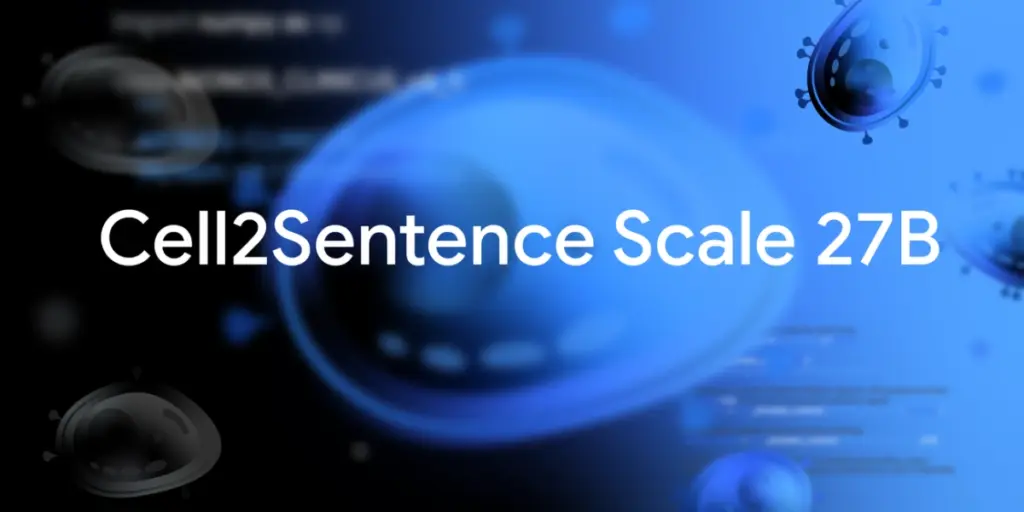Google AI just hit a game-changer in cancer research. The company’s C2S-Scale 27B model created a fresh Google AI cancer hypothesis on tumor cell behaviour. Scientists at Yale confirmed it in real human cells. CEO Sundar Pichai calls this a milestone for AI in science. It shows AI can spark real discoveries, not just crunch data. This step could speed up new cancer treatments and save lives.
Google AI Cancer Hypothesis: How C2S-Scale 27B Decodes Cells and Fights Tumors?

Google teamed up with Yale University to build C2S-Scale 27B. This 27-billion-parameter AI runs on the open Gemma framework. It trains on over a billion single-cell profiles. The model turns raw molecular data into “cell sentences.” This lets it grasp how cells talk and act in tough spots.
The Google AI cancer hypothesis focuses on silmitasertib, a drug. It predicts the drug boosts antigen presentation in cancer cells by nearly 50%. This happens in low-interferon conditions. Antigen presentation makes tumors show abnormal proteins. Immune cells spot these flags and attack the cancer.
Tests in human cell models proved the idea right. This targets “cold tumours.” These sneaky cancers hide from the immune system. They resist standard therapies. The finding opens doors to better immunotherapy. More preclinical and clinical trials will test if it works in patients.
Key specs of the Google AI cancer hypothesis and model:
- Training Data: Over 1 billion single-cell profiles for deep biology insights.
- Core Prediction: Silmitasertib enhances immune signaling by 50% in low-interferon settings.
- Validation Method: Experiments on living human cells confirmed the boost.
- Impact on Cold Tumors: Makes hidden cancers visible to the body’s defenses.
- Next Steps: Preclinical trials to explore therapy pathways.
Pichai shared the news on X. He said more tests could unlock new cancer fights. This goes beyond analysis. AI now reasons like a scientist. It proposes bold ideas backed by experiments.
Also Read: DomainFest Asia Macau : Conference Photos & Recap
Google shares the model openly on Hugging Face and GitHub. Researchers worldwide can use it. Build on it. Test more hypotheses. This democratizes AI for global health wins.
The breakthrough excites experts. Bryan Johnson, a biotech leader, praised how the AI “listens” to cell signals. It turns patterns into proven paths. As AI joins labs, discoveries speed up. Patients gain hope against tough cancers. Google AI cancer hypothesis proves tech’s power in medicine.
More News To Read: Comet App Dangers: Perplexity CEO Issues Urgent Warning
